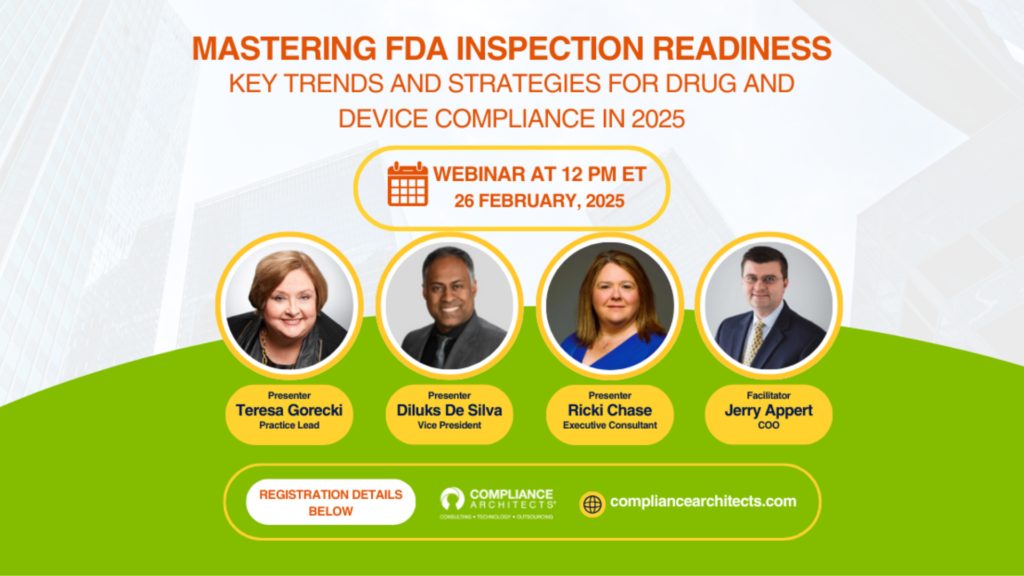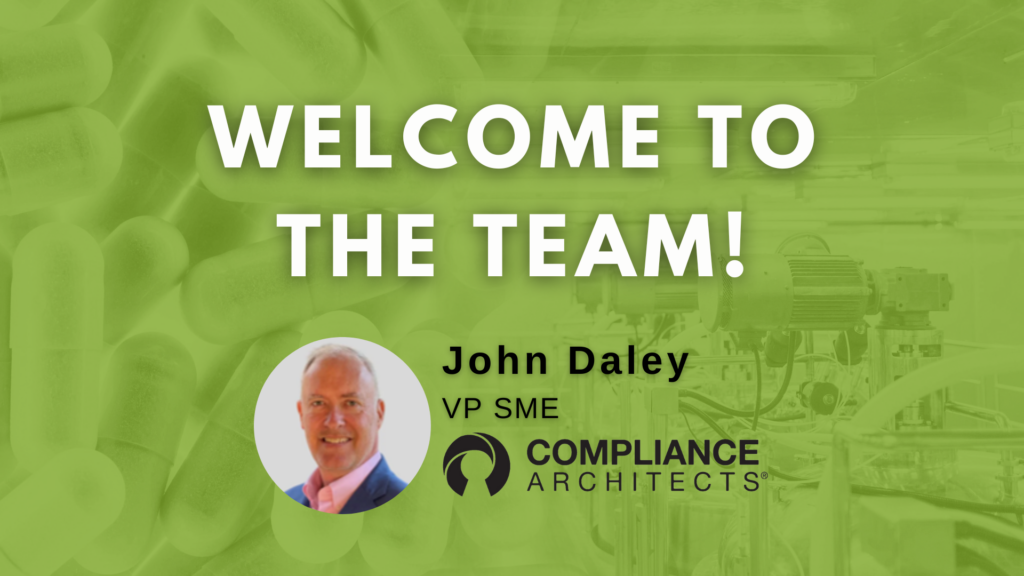CEO Jack Garvey is excited to announce his involvement in a panel discussion next week, “HealthTech & The FDA: What startups need to know” by VentureOut & Medstartr. Originally planned to be held on-site in NYC, the event is now being held virtually on Tuesday 24th March, 2020 from 9-10am. REGISTER HERE!
…A little bit more about the panelists and discussion topics…
Keiji Asada – Founder, Amenichi
Debra Perry – Principal, McCarter & English
John Garvey – Founder, Compliance Architects
Panel Discussion Topic:
“HealthTech & The FDA: What startups need to know”
Introduction & Landscape:
This panel will discuss if you need FDA approval for your health or med-tech service or product and if so how to obtain FDA approval
Since 2017, the FDA has been developing a regulatory programme for Software as a Medical Device (SaMD). Examples of these sorts of products would be software that diagnoses a stroke by analysing MRI images, or one that tracks the size of a patient’s mole over time to determine the risk of melanoma. This new movement within the FDA will provide a more robust, accurate and hopefully efficient process for software start-ups going forward, who historically had to fit into the hardware-based regulatory system.
If the regulation procedure is understood, collaborated with and properly resourced, then the chances are high that your product will gain the approvals it needs to be a global success.
Beyond the US
Europe has its own equivalent of the FDA, the CE (Conformité Européenne). Historically the CE has differed from its US equivalent in focusing more on safety and technical performance. The FDA is intent on safety too, but it also looks closely at efficacy and how your product will fit into the rest of the market – its appropriateness and necessity. It has generally been thought that CE approval is easier to obtain than the FDA’s, but this is changing. As of May 2020, the CE is switching from the current Medical Devices Directive (MDD) to a new Medical Device Regulation (MDR) system. The regulation process is expected to take four times longer, with more stringent classifications of devices regarding levels of risk. What will this mean for startups? An even greater need to build contingencies into their business plans for lengthy, possibly costly, preparation work.
An overview of the Process from each panelists and Topics/Themes they will raise:
The Founder Journey
The Legal Journey
The Compliance Procedures




